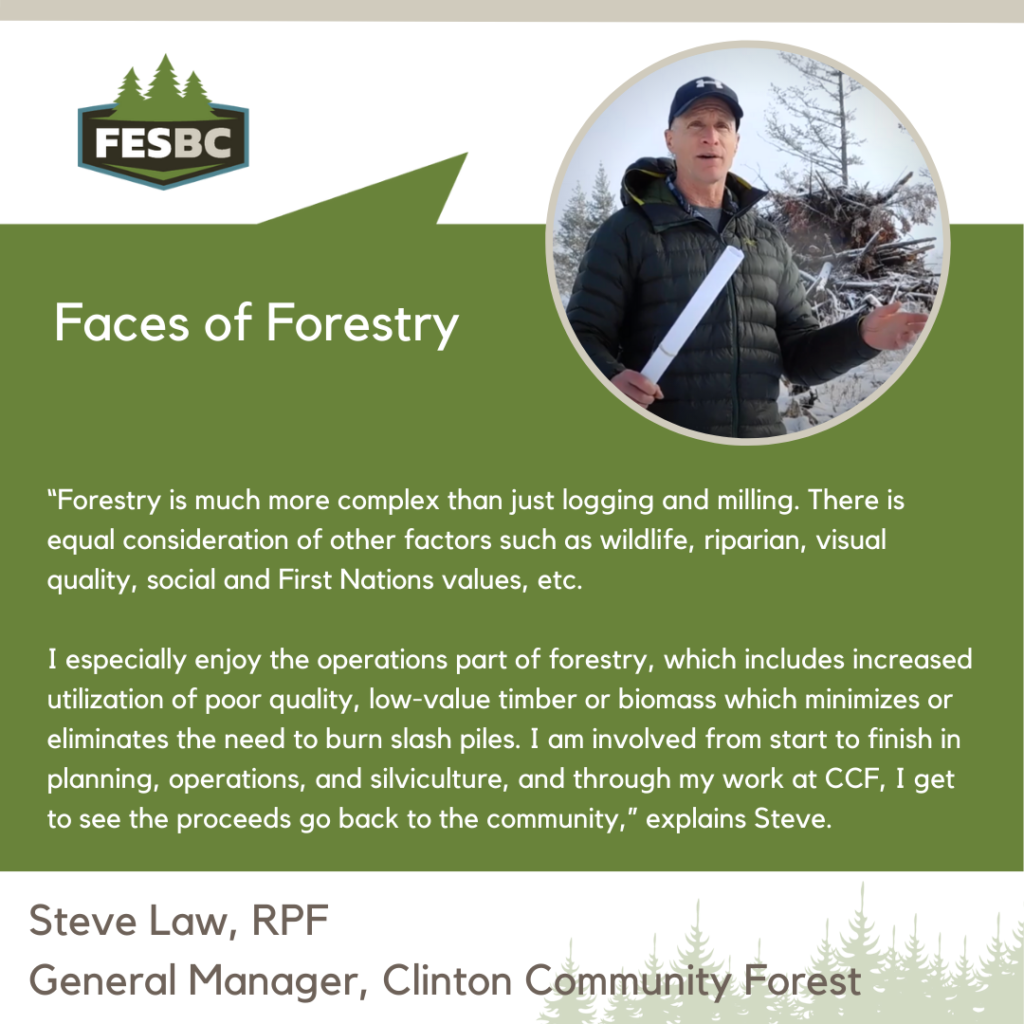Faces of Forestry is an initiative of the Forest Enhancement Society of BC (FESBC) to highlight people doing great work to enhance our forests throughout British Columbia. This month, we feature Steve Law, RPF (Registered Professional Forester), General Manager of the Clinton Community Forest (CCF).

Steve’s profound passion for the outdoors, mountain biking and his “outside the box” mindset led him to start a career in forestry. He has completed a Diploma of Forestry Resource Technology from the College of New Caledonia, graduated from the Association of BC Forest Professionals Pupil Program and became a Registered Professional Forester in 1997.
Currently, Steve is the General Manager of the Clinton Community Forest and manages ten woodlots in the Cariboo Region. In his role, he works with the volunteer Board of Directors and the Village of Clinton to carry out safe and sustainable management practices for timber production, recreation, and natural preservation.
“Forestry is much more complex than just logging and milling. There is equal consideration of other factors such as wildlife, riparian, visual quality, social and First Nations values, etc. I especially enjoy the operations part of forestry, which includes increased utilization of poor quality, low-value timber or biomass which minimizes or eliminates the need to burn slash piles. I am involved from start to finish in planning, operations, and silviculture, and through my work at CCF, I get to see the proceeds go back to the community,” explains Steve.
After meeting operational costs, surplus funds are invested into the community and surrounding area. As residents of the Village of Clinton, the volunteer Board of Directors seeks to benefit the local area through programs, events, and bursaries.
“Community forestry with the direction of a Board of Directors, allows us more freedom to manage social and economic community values,” said Steve.
To balance the economic and ecological concerns, the CCF has applied for funding with the FESBC for fuel break and wildfire risk reduction treatments. The projects will help reduce the wildfire hazard in high-priority areas within the community forest and surrounding rural developments. The wildfire risk activities include standard fuel management practices such as thinning, pruning, removal of unhealthy trees, understory burning, and encouragement of deciduous tree growth.
